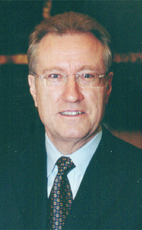Madam Chairman, that is an excellent question. There is no immediate military threat to Canada in the north. There are a number of security challenges in the region, the increasing accessibility to the region, as the hon. member has pointed out. These all require continued and strengthening vigilance.
We are doing a number of things in that regard in the short run. For example, we are earmarking in this budget some $205,000 to further expand ranger patrols, our fine ranger organization up in the north. They are our eyes and ears in the north. We are increasing the rangers to some 1,300 personnel. We will open an office and post an officer to the office in Iqaluit within the next few months or so, sometime this summer. We will also send a couple of our naval ships up there, one to Iqaluit and the other nearby, to explore the waters in the eastern Arctic.
These are the beginnings of improvement. We are looking for opportunities to provide more training for our Canadian forces personnel in the north. We will have to go beyond these, quite clearly. These are short term steps.
In the longer run, I think we will have to address issues such as the possibility of the Northwest Passage being opened for more shipping. That is a very real possibility. With global warming we are seeing more and more ice free times in the Arctic. Within another 10 to 15 years we could well have ice free conditions for a sufficient length of time to justify the cost of running commercial shipping up there. I think a lot of commercial ships going from northern Europe to Asia would find it a lot less expensive than going down through the Panama Canal. That poses a challenge. We have to get ready for that challenge. That certainly will be part of our ongoing discussions.
We do have an interdepartmental committee, which is actually chaired by a representative of the Canadian forces out of Yellowknife, that is into discussions about what we will do in the future in the Arctic.
Our north warning system covers 47 unmanned radar sites in the north, all of which help to protect. We have some forward operating locations in the north for our CF-18 fighters if any threat comes into that area.
We have a number of things now. We are adding some things in the short term, but in the long run we still have more work to do.

